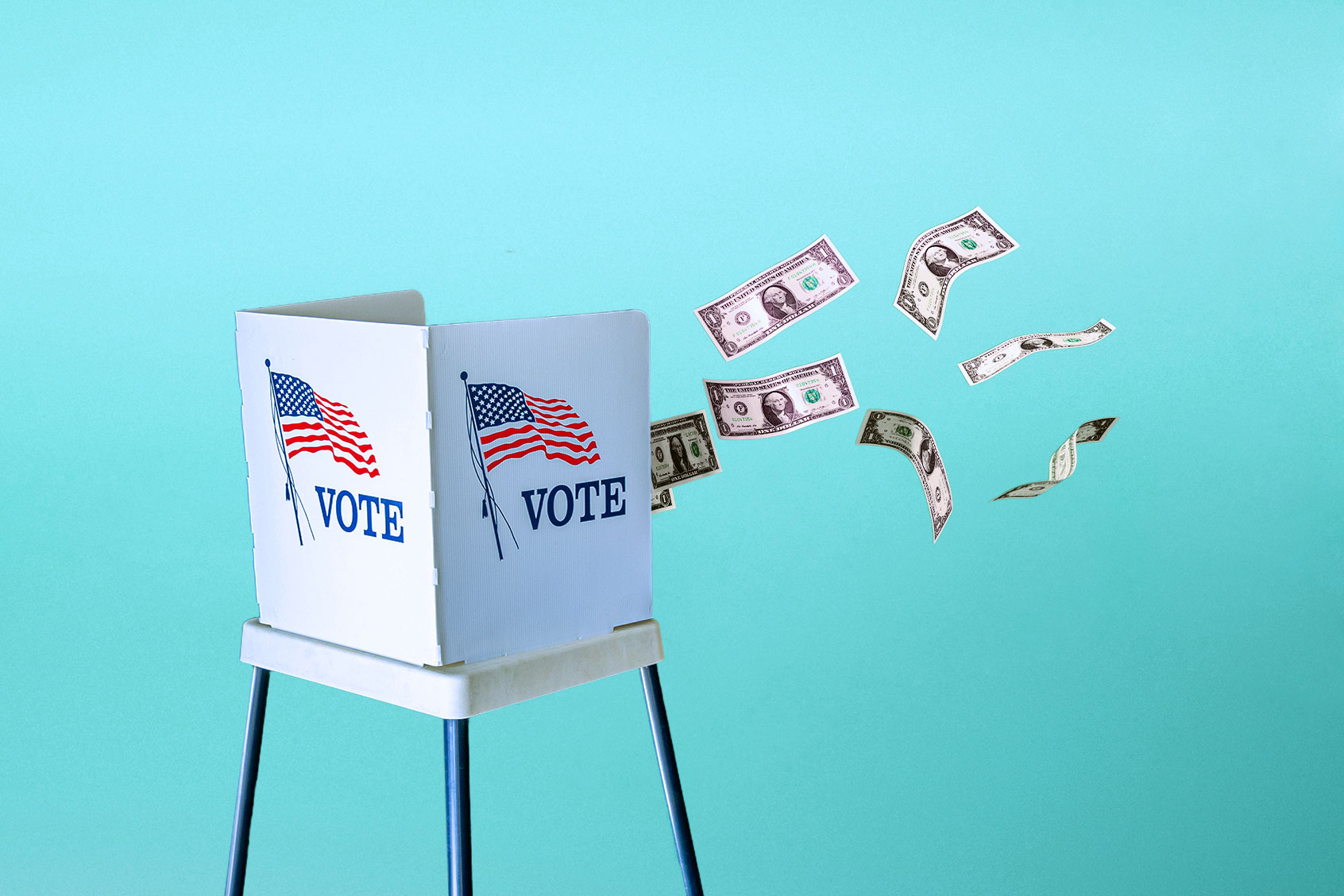As voters head to the polls today, a familiar worry is on their minds: the economy.
A Gallup poll released Friday said registered voters name the economy as the most important factor determining which candidate they are supporting in the presidential election. The 21% of voters who said the economy ranks first includes 35% of Republicans and Republican-leaning independents and 7% of Democrats and Democratic-leaning independents, Gallup said.
Salon's coverage of economic issues in the 2024 election has analyzed how much control the next president will have over the economy, whether voters should make their wallets a priority, how the candidates plan to tax Americans, the growing role that cryptocurrency voters have played and the overall economic lessons from this election. Here are some of those:
The president doesn't control the economy
Although half of Americans believe the winner of the election will affect their finances, a president's impact on the overall economy and the stock market is pretty nuanced and often requires cooperation from Congress.
One notable exception is tariffs — taxes on imported goods from other countries. Federal law allows presidents to impose them without Congress' approval, and former President Donald Trump has said he would increase rates if elected in order to stimulate American manufacturing. Critics have said the costs would be passed on to consumers and could hurt the stock market.
Tax cuts, hikes and credits proposed by Trump and Vice President Kamala Harris would need a friendly Congress, which means down-ballot races are important when considering which elected officials would most impact the economy.
Think twice about voting with your wallet
Even though inflation has cooled, food and housing costs remain higher than before the pandemic. That may be one reason why some people are thinking about voting with their wallet, but experts warn that it's important to understand a president's influence over the economy.
"A president has influence over both fiscal policy and monetary policy, but the influence is indirect," said Michael Walden, a Reynolds Distinguished Professor Emeritus at North Carolina State University.
Fiscal policy is implemented through the federal budget, which is determined by Congress. Walden recommended that voters follow the Federal Reserve, which has more direct influence on the economy in reducing the rate of price increases, and do some long-term planning regardless of who is elected. Save funds for emergencies, create a budget, contribute to a retirement plan and stay the course in investing.
Tax proposals are "a mixed bag"
Money policies are a key part of campaign platforms, starting with taxes, and Harris and Trump have floated various policies to raise them, lower them and expand tax credits. But these would need to survive Congress, and the initiatives may not provide the relief that is being touted, experts said.
We need your help to stay independent
Harris has focused on lowering taxes for middle- and low-income earners, and raising taxes on the wealthy and corporations. She wants to give down payment assistance to homebuyers and tax deductions to new businesses, but the impacts of these may be limited, experts said.
Trump's proposed tax breaks would help mostly higher earners and companies. His all-tariff policy would eliminate income taxes for all workers, which experts warn would effectively raise tax costs for lower-income earners. He has indicated support for eliminating federal income tax on Social Security benefits, exempting overtime hours from income taxes and extending his 2017 tax cuts that are set to expire next year.
Watch the crypto vote
Cryptocurrency voters emerged as a force in this election, scrutinizing candidates' positions on everything from regulatory clarity to innovative policies and government overreach. Their influence is likely to be felt in future election cycles.
In a September Consensys Crypto Voter study, nearly half (49%) consider it important for their candidate to support pro-crypto policies. Republicans and Democrats are evenly split in who they trust on crypto policies, but 56% support Trump's pro-crypto stance, and 54% say Harris needs to take a clear position on crypto.
At the top of crypto voters' wish list is an end to regulatory uncertainty.
"I think making it a place where there's less questions and not fear of retaliation without clear regulation is extremely important," said Alicia Cepeda Maule, co-founder and CEO of Givepact, a crypto-focused philanthropy platform.
Economic lessons
Finally, the lesson from this election is that everything related to the economy is connected, and the policies proposed by Harris and Trump would have ripple effects.
Some experts point to how progress on one issue, such as affordable housing, could improve several others: jobs, mental health, addiction.
On the other hand, mass deportations of immigrants "will disrupt our supply chain, decreasing our economy and increasing costs, which lead to higher inflation,” said Chris Clarke, an assistant professor of economics from Washington State University. Tax credits to help people buy homes could overwhelm an already strained housing market.
There is consensus that Harris’ plans will result in a less chaotic economy overall with less impact on the budget deficit, according to the Wall Street Journal, the CBRF, Goldman Sachs, 16 Nobel Prize-winning economists and others.
But ultimately, Congress is "the elephant in the room," said economist Claudia Goldin of Harvard.
Read more
about personal finance

